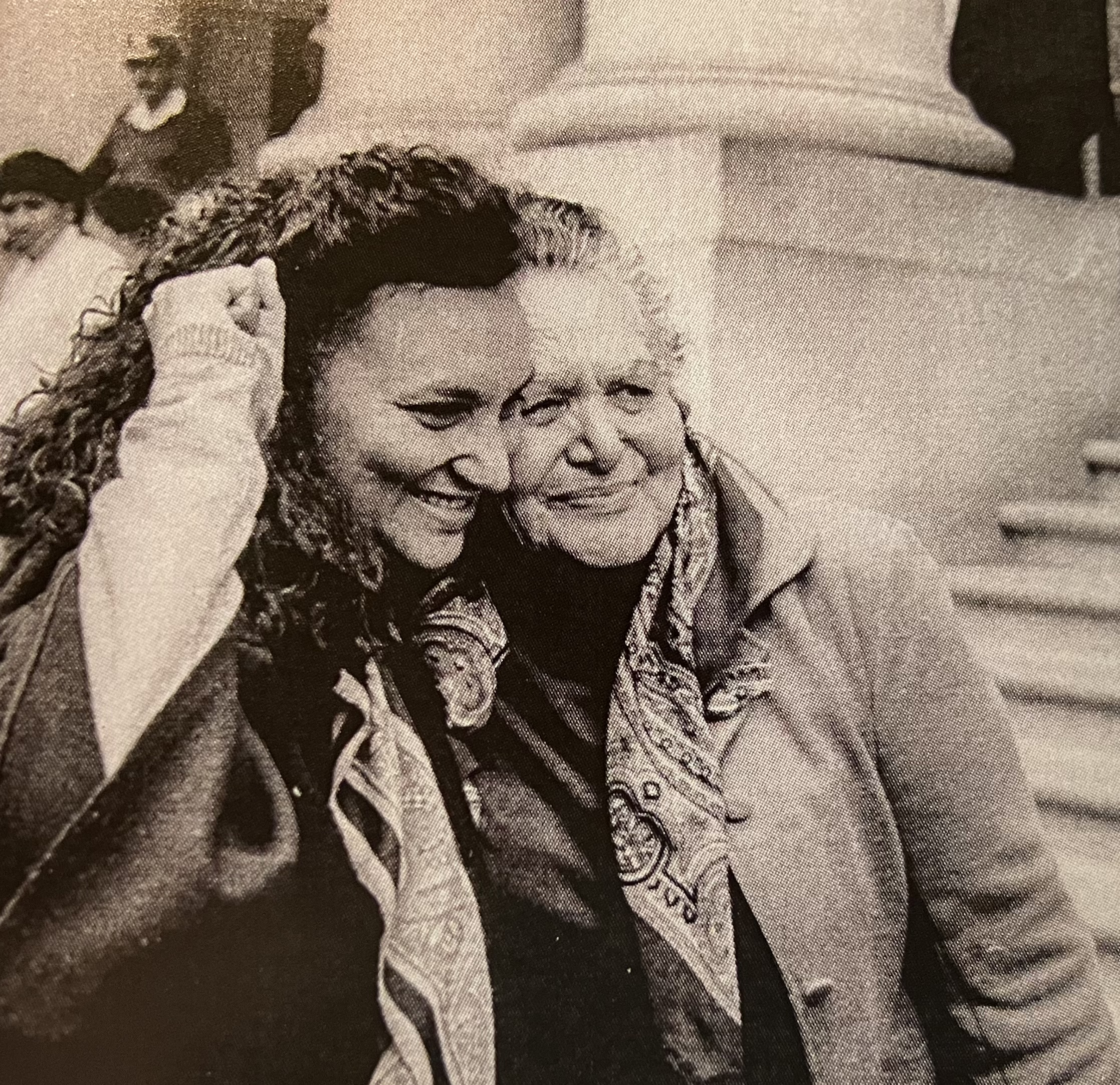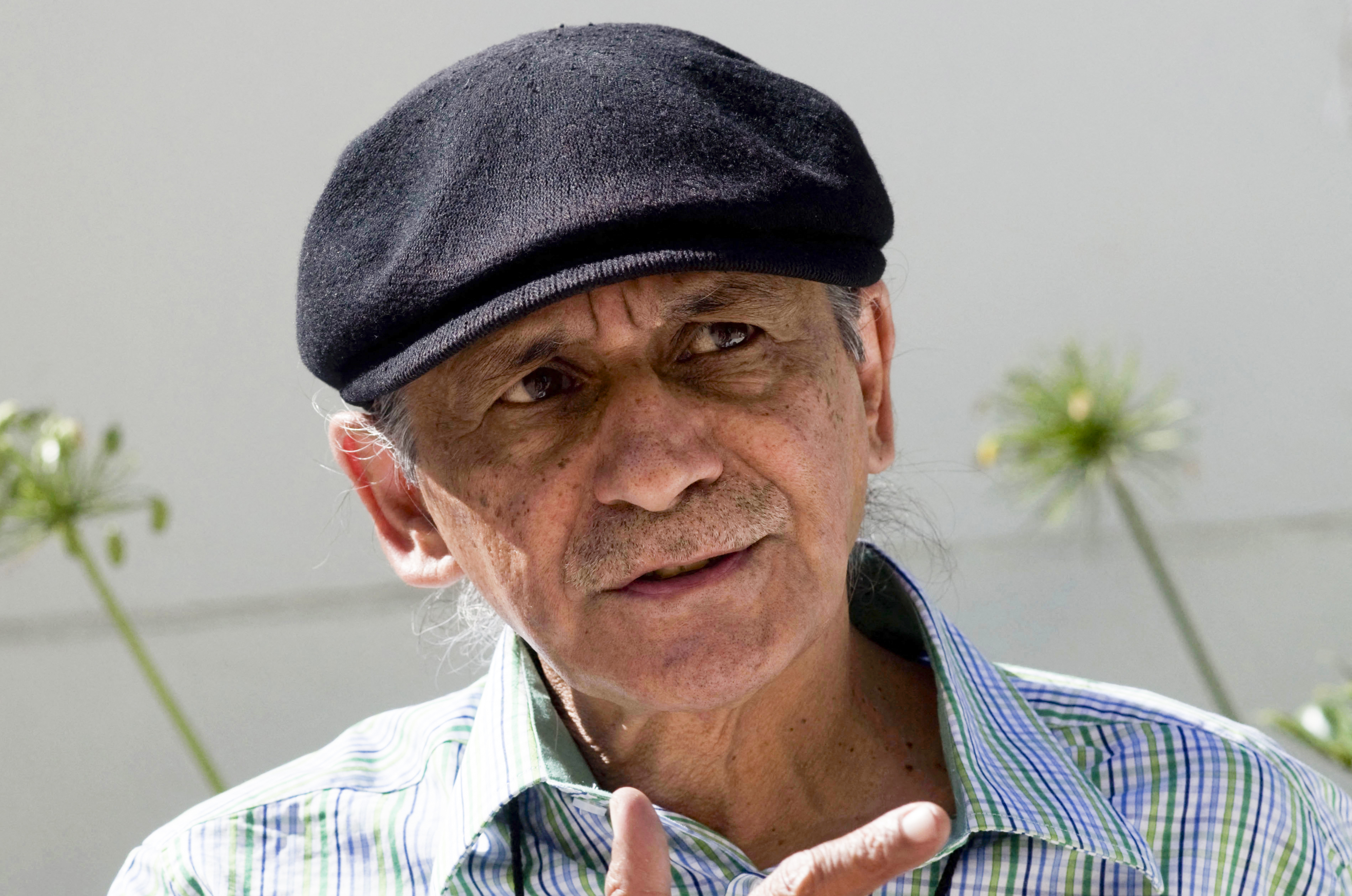Thirty-six years ago, in August 1989, in Gugulethu township, near Cape Town, I watched the highest-ranking Anglican clergyman in South Africa deliberately being teargassed as he resolutely tried to protect young, defenceless pupils from the fury of the riot police.
That priest was the leader of the Anglican Church in southern Africa, Archbishop Desmond Tutu.
On that day, he led at least 500 pupils who had resolved to show their support for the national defiance campaign launched by the mass democratic movement. The arrival of police derailed their plans. They fled into Holy Cross Catholic Church. When the Arch, as Tutu preferred to be called, arrived, he negotiated what he thought was a safe passage for the young people with the men in camouflage uniforms.
The rector of the University of the Western Cape, Professor Jakes Gerwel, was with him. I was there as a reporter for the Cape Argus newspaper. Also, there was the slim, renowned and fearless photographer Rashid Lombard. As usual his black hair was tied in a ponytail. A black beret sat on his head. Black as his hair was his moustache. We watched teargas being fired at the Arch, Professor Gerwel and the teenagers. Young people scattered.
 Rashid Lombard at Freedom Park Heritage Site in Pretoria on 10 March 2023. (Photo: Gallo Images / Frennie Shivambu)
Rashid Lombard at Freedom Park Heritage Site in Pretoria on 10 March 2023. (Photo: Gallo Images / Frennie Shivambu)
On that winter’s day in Gugulethu, while many were coughing and trying to wipe away tears, which are wont to flow in a teargas attack, Rashid stood firm. He calmly raised his camera and started taking photographs that would become world famous. He captured on film images of the Arch walking through a cloud of teargas. They were stunning images.
He offered his pictures to my newspaper. They were declined because of the State of Emergency press restrictions. The Cape Times used them the next morning.
Gutsy deputy editor Deon du Plessis was infuriated that our newspaper had turned down Rashid’s pictures. Rashid allowed the paper to use them. They were subsequently splashed across the front page. His evocative pictures moved Cape Town’s English-language newspapers to disregard press restrictions.
I recalled this event on Wednesday when I was informed that Rashid had passed away at the age of 74. And as the recollections came gushing, I recalled his gentle, kind eyes, visionary and pioneering spirit, and his great love for his wife, Colleen, their children and grandchildren. Colleen, whom he married in 1970, was held as a detainee from 14 August 1987 until 29 January 1988. Not by choice, he became a single parent of their three children, Yana, Chevan and Shadley, for a while, as his ANC courier wife was held incommunicado.
 Rashid Lombard at the 19th MTN South African Music Awards at Sun City on 12 May 2013. (Photo: Gallo Images / City Press / Lucky Nxumalo)
Rashid Lombard at the 19th MTN South African Music Awards at Sun City on 12 May 2013. (Photo: Gallo Images / City Press / Lucky Nxumalo)
 Rashid Lombard. (Photo: Gallo Images / Financial Mail / Hetty Zantman)
Rashid Lombard. (Photo: Gallo Images / Financial Mail / Hetty Zantman)
I remembered how, between 1985 and 1990, we were part of a group of news people who were reporting on the struggle. It was a job that consumed our lives and forged strong bonds. In this group were news legends such as Jimi Matthews, Adil Bradlow, Benni Gool, Ayesha Ismail, Sahm Venter, Willie de Klerk, Obed Zilwa, Eric Miller, Guy Tillim, Mike Hutchings, Azziz Tassiem, John Rubython and many others. It takes the death of a former colleague to bring back their names and the times in which we lived and reported on.
To me there was a common belief that held us together: we wanted to tell the story of the struggle, the bravery of people – many of them so very young – yet not enough to stop state-sanctioned violence gleefully delivered by cruel men. We were the witnesses; Rashid’s camera faithfully recording this infamous history.
 Gertrude Fester and her mother Freda outside the then Supreme Court in Cape Town (Photo: Rashid Lombard)
Gertrude Fester and her mother Freda outside the then Supreme Court in Cape Town (Photo: Rashid Lombard)
A lover of jazz who went on to pioneer the Cape Town Jazz Festival in post-apartheid South Africa, Rashid and I teamed up for an interview with uMkhonto weSizwe chief of staff Chris Hani. After the unbanning of the ANC, the charismatic leader and other exiles returned home. On his first open visit to Cape Town, a senior ANC member called me. I was informed that Comrade Chris would be meeting senior newspaper executives at the University of the Western Cape. I was not on the guest list.
Miffed, I called Buyiswa Jack, a former detainee incarcerated under section 29 of the notorious Internal Security Act, which has mercifully been repealed, to apprise her of the situation. She contacted her brother, Pro Jack, who was assassinated years later, his killers never apprehended. I was sitting in the Argus newsroom when I was called, instructed to bring only Rashid along, and meet Pro in front of the Langa Post Office. The MK legend, Hani, had insisted that Rashid be the photographer, even if he was not an Argus staffer! Such was his reputation.
We spent more than an hour interviewing Hani. The next day the Cape Argus had a poster that alerted readers to an exclusive interview with Hani. Rashid’s pictures were used.
Reminiscing about past stories and scoops, I went to my bookshelf and retrieved a slim publication, To the Moon and Back: A Detention Memoir. Years ago, I bought the book with the purple-blue cover at Clarke’s Bookshop, an institution on Cape Town’s Long Street. The author is Colleen Lombard, Rashid’s widow, and fellow jazz aficionado.
She was arrested with her friend and comrade, the late Zurayah Abass, as they tried to smuggle Nicklo Pedro (also late) and Yasmina Pandy across the border. During her detention she came close to taking her own life, while at home Rashid was taking care of their three children. Those were very hard years.
 Rashid Lombard. (Photo: Gallo Images / Financial Mail / Hetty Zantman)
Rashid Lombard. (Photo: Gallo Images / Financial Mail / Hetty Zantman)
The book, which was a project that Rashid strongly believed in and supported, was first published in 2021. Colleen wrote it 10 years after her incarceration and subsequent court appearance as an accused in what became known as the Rainbow Trial, which started in the Supreme Court in February 1989, a year before Nelson Mandela was freed from jail.
The Western Cape’s last so-called terrorism trial, it spluttered on until March 1991 when all charges were withdrawn against the accused.
In 2014, the national government recognised Rashid’s enormous contribution to the reopening of the rich well of jazz music in South Africa and awarded him the National Order of Ikhamanga in Silver for his excellent contribution to arts and culture and his dedication to jazz music. That was a richly deserved honour.
Rest well, Rashid. You were a legend. You were on first-name terms with great men and women who recognised your greatness, yet you never lost the common touch and your humility. DM




 South Africa16 March 2009 Rashid Lombard, CEO of esp Afrika. (Photo: Gallo Images / Financial Mail / Hetty Zantman)
South Africa16 March 2009 Rashid Lombard, CEO of esp Afrika. (Photo: Gallo Images / Financial Mail / Hetty Zantman) 